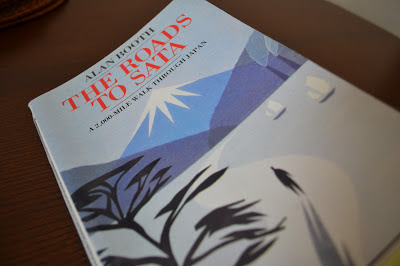Something Like an Autobiography (Akira Kurosawa)
Aww, relief….
After the long and enduring read that is ‘Mao: The Unknown Story’, I
needed something light, entertaining and easy to read. Kurosawa’s
sort-of-autobiography was the perfect tonic.
Like Ronseal, ‘Something Like an Autobiography’ does exactly what it
says on the tin (cover). Written in 1981, Kurosawa believed that his life from
1950 onwards, when corking, copper-bottomed hit ‘Rashomon’ brought him
international acclaim, was nothing more than making films, and as such a
documentation of that period would be of little interest to any. Of course,
this is harsh self-criticism, but the man himself believed that his films would
be a better reflection of his life from that point on – he is a film director,
after all.
The book, therefore, follows his childhood upbringing from a samurai
family, through school and into his starting in the film industry as an
assistant director under Kajiro Yamamoto and Mikio Naruse, before directing his
own films. Focusing on some of his earlier and lesser-known works, ‘Rashomon’
is the cut-off point where he stops.
Written well over thirty years after the events for much of the book,
it reads more like a collection of short anecdotes from an aging man as he
looks back on his youth. The films are looked at, but not in any great detail,
as he focuses more on the relationships he had with the cast and other crew and
what he learnt from them, such as how to drink.
‘Something Like an Autobiography’ feels like a taster of what was to
come later, when his career as a director really took off and he made many of
the films he is known for today. But, it is an enjoyable read of an old man and
his musings.
Days to read: 12
Days per book: 15.9
The Japan Journal: 1947-2004 (Donald Richie)
For years, Donald Richie was little more to me than just an American
who wrote a lot about Japanese cinema. The leading foreign voice, writing
celebrated books on Ozu and Kurosawa, I didn't know too much about him beyond
writing about 'Seven Samurai'. His death earlier this year, prompted new light
to be shed on his life, and as such I proceeded to delve further. 'The Japan
Journals' is what resulted.
Started when he first moved to Japan after the Second World War, 'The
Japan Journals' is a cobbled together collection of some of his diary entries
over the years of his life spent living in Tokyo, looking at his life as a
translator, film maker, writer. Structure is not a term appropriate for the
collection, being that Richie was not meticulous in his maintaining of the journal,
nor keeping it in an ordered manner. To read, it is, therefore, inconsistent,
with several year leaps in places, and new life stages reached without any
build-up.
At its best, 'The Japan Journals' sees Richie comment on the social,
cultural and economic changes in Japan over his time there; at its most boring,
it is anecdotal about the various artists that he served as interpreter and
guide for while they visited the country; and at its worst, it is preoccupied
with his sex life, focusing too heavily on any young boys he met and to whom
took a fancy. Pointed out by close friends, while not a complete reflection of
his life, the collection makes Richie out to be sex mad, often picking up men,
hanging out in sex cinemas and brothels, regularly conversing with prostitutes.
While this paints a picture of both his and Japanese life, it does get a bit
tiresome after a while.
But, when the focus is on cultural differences and the changing face of
his accidentally adopted homeland, it shows a love affair with a rapidly
changing country, for better or worse.
Days to read: 26
Days per book: 16.1
The Roads to Sata (Alan Booth)
Set off from Cape Soya, Japan's northernmost point, and walk the 2,000-mile
journey to Cape Sata, the southernmost point
of Japan's four principle islands, and you're probably mad. Well, I am mad and
I like this idea.
Born in Leytonstone, like the much-travelled David Beckham, Alan Booth
is an English writer who moved to Japan after his time at the University of
Birmingham to study Noh theatre. Married, he clearly got bored and decided to
wonder off for a few months in the Japanese equivalent of Land's End to John
O'Groats. 'The Roads to Sata' is his account of the four month journey, documented
the people he met, the places he saw and the alcohol he drank.
Done in 1977 at the age of 30, a white man from East London meandering
around the Japanese countryside was probably an unusual sight, made even more
unusual by his ability to speak the lingo. Booth was often met with 'full' ryokan,
hostile receptions and cries of 'gaijin!' alongside friendly drinking
companions, offers of lifts from drivers and calls for his head to be examined.
'The Roads to Sata' is a witty account of his journey, with numerous
drunken tales, but also shows a changing Japan, away from the bright lights and
big cities. The differences in human geography as he makes his way further south
are noted, as well as the various history lessons offered as he searches for
the 'real' Japan.
Days to Read: 13
Days per book: 16.0
Three books, from three different perspectives, all about the Land of
the Rising Sun: An elderly Japanese, not giving too much away; an American in
search of his identity; and an Englishman that likes to drink beer, all entertaining
and educational in their own respects.

No comments:
Post a Comment